A better way to help developing countries fight climate change
At the Copenhagen summit in 2009 rich countries promised to supply annual climate financing of $100bn to poor countries by 2020. At COP27 they pledged for “Loss and damage”, but COP27 was also characterised by “the lack of progress on decarbonising energy systems”. Public funding will never fill the gap. Rich countries are beset by covid-era debts, rising interest rates and soaring energy prices. A better idea is to use public money to “derisk” projects funded largely by private capital. Investors often demand much higher returns on ventures in the developing world, because they consider them so perilous. Public investment can help reduce this risk premium. Transfers from rich to poor countries are essential, since most of the current flow – and future flow of renewables? - comes from poor and middle-income countries. The focus should be on how much poor countries get, thanks to private investment. (The Economist 26/11/2022)
This will weaken it and threaten its global position

vs.
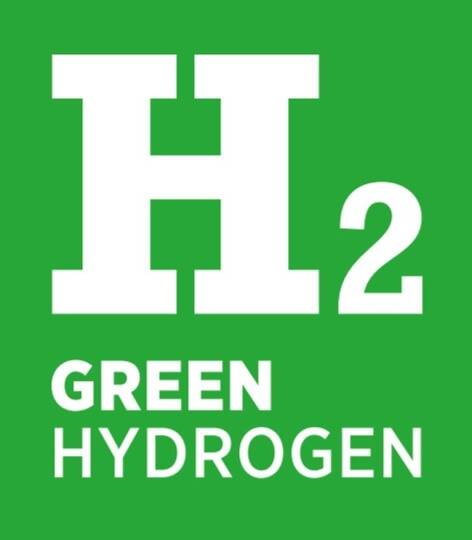
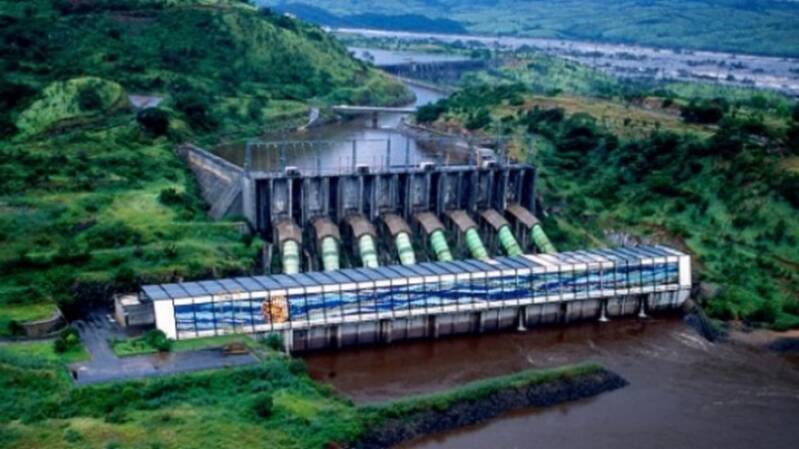
Africa is endowed with 35+ % of the global capacity to produce green hydrogen at €2/kg and with 50+ % of the global solar irradiation
- One example of Africa’s abundance of renewable energy: GRAND INGA hydro-electric project DRCongo: 44 GW (44 electro-nuclear reactors), independent of wind and solar, no nuclear waste, no fallout after military attacks or tsunamis (France 56 reactors)
Geopolitics of the Energy Transformation - The Hydrogen Factor
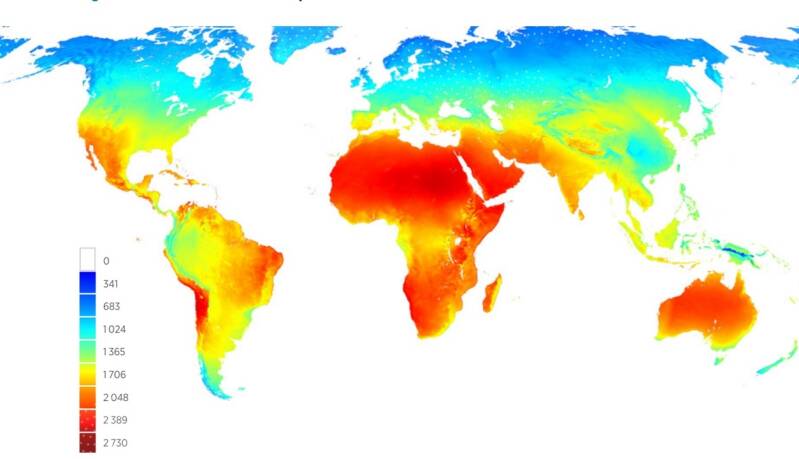
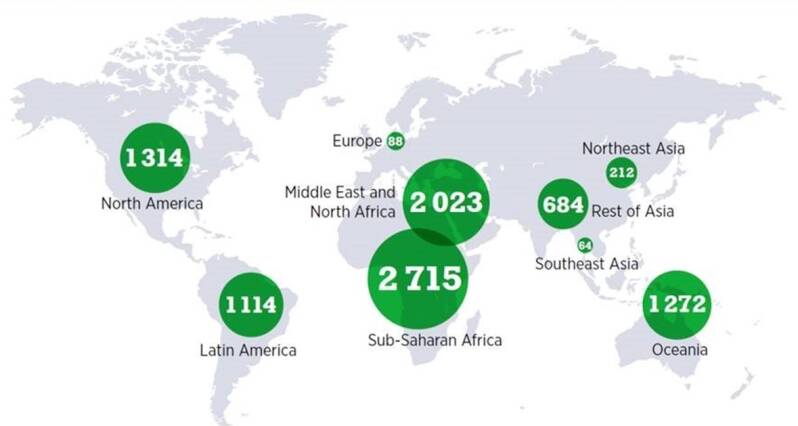
Global potential of solar energy. Annual average of the total horizontal irradiation kWh/m²: Africa 50+%
Global potential for the production of green hydrogen at less than USD 1.5/kg (exajoules): Africa 35+%, Middle East 14%; North America 14%; Oceania 13%; Latin America 12%; Asia 9%; Europe 1%
- Africa wants to transform its natural resources locally. Only Africa's export-led manufacturing industrialisation will be able to create 12 million decent jobs a year, decimate poverty and prevent conflicts and forced migration.
- Before selling renewable energy to Europe, Africa wants to exploit it for its own manufacturing industrialisation.
- Africa and private investment, the saviours of a global polycrisis: "Climate - Energy - War in Europe - Migration"
- Europe needs Africa more than the other way around (Global population 2050: Europe 7%, Africa 25%)
Solar and hydro energy offer developing countries in the tropics a natural competitive advantage.
- Africa is endowed with an abundance of renewable electricity and 35+% of the global potential for producing “cheap" green hydrogen. Is it still appropriate for the developed world to cling to energy-consuming industries when, thanks to green hydrogen, they can be produced in and shipped from developing countries without CO2 emissions? Especially in areas with a desire for modernity and a high need for fertiliser, steel, cement, aluminium and glass.
The industrialisation of Africa can supply up to ten million decent jobs a year, suppress extreme ideologies, conflicts and forced migration and create a huge market for innovative upscale products and services.
- African countries with an abundance of low-cost renewable power could become producers of green hydrogen, using their potential to attract energy-intensive industries (iron, steel, cement, chemicals, petrochemicals, non-ferrous metals, ceramic materials, recycling electronic scrap)
- Participation in the hydrogen value chain can encourage African SMEs to also participate en masse in advanced international value chains, in the most diverse economic sectors, and create millions of formal jobs.
- Militarisation and cartelisation of the hydrogen trade is unlikely. The hydrogen market could be more democratic and inclusive and offer new opportunities for both developed and developing countries.
- In the mid-2030s, green hydrogen will compete globally with the cost of fossil hydrogen. Vertically integrated chains "production green hydrogen & production of energy-consuming raw materials", which escape from carbon taxes, can become competitive earlier. Their market value can skyrocket.
- It is crucial that the West works together with developing countries, rich in renewable energy, to deploy green hydrogen technologies and develop hydrogen industries:
- to decarbonise the global energy system;
- to create local and international value chains, green industries and millions of decent jobs;
- to contribute to global equality, inclusion and stability.
Europe & the delocalisation of energy-guzzling industries to Africa
Job-losses
- In the past, Europe already has lost hundreds of thousands of "indispensable" jobs in the closure of coal & non-maritime steel, the demise of textiles, apparel and national airline champions, the closure of car assembly and consumer electronics. Partly under the influence of the demographic deficit of the West – and of China – today the West is suffering not from a lack of employment, but from a shortage of labour.
- Europe should compensate for the decline of energy-intensive activities by stimulating an ecosystem (1) that encourages investments in more innovative, more sustainable and more recyclable manufacturing industries; (2) that does not leave the industrialisation of Africa and its right to modern comfort to China alone.
Benefits
- African green hydrogen silences Putin
- A new growth market with 25% of the world's population, at 14 km from Europe, with historical-cultural links;
- 'Net Zero' emissions;
- Containment of illegal migration;
- A new informal geopolitical AU-EU powerhouse capable to take the lead in global negotiations on important and urgent subjects (climate, pandemics, free trade, migration, security, conflicts, migration, …);
- Energy security: when relocating energy-consuming industries to Africa, European green wind and solar energy can be reserved for affordable residential use and for less energy-intensive industries.
The impediment: the preconceived Western perception of an unstable Africa
- Recent exchanges with 200 entrepreneurs in Belgium, Germany, the Netherlands and France revealed that only three of them were able to name two of the fifteen sub-Saharan countries with stable institutions(*). The skewed perception of an unstable and unskilled Africa, with a governance deficit, not ready for an advanced, labour-intensive agribusiness and manufacturing industrialisation is deeply rooted in the EU's subconscious.
- Indeed, there is still a lot of inequality in Africa, but there is also the "other" Africa of 15-20 sub-Saharan countries with fairly stable institutions, an educated middle class, accessible industrial sites and an abundance of renewable energy. All African countries have an educated middle class, a financial upper layer and masses of renewable energy.
The remedy: EU governments need only promote the "other" Africa throughout their societies. Awareness of the whole of society on a low budget. That's all.
- It is expected that a whole-of-society awareness-raising activity, carried out by EU governments with the cooperation of business, academia and non-governmental organisations, will encourage European industrial entrepreneurs to seek partnerships with their African peers. As a first step, EU SMEs use their African partner as a commercial, installation and maintenance unit.
- In a later phase, they jointly develop an innovative product, based on the latest technologies but adapted to needs and manufactured in the AfCFTA, the largest free trade market in the world with by 2050 a quarter of the total world population. There is a good chance that innovative products "made in Africa" will even find their way to all continents.
(*) The Economist Democracy Index 2021 Sub-Sahara Africa (Ranking Feb 9th 2022). “Full democracy”: 1. Mauritius; “Flawed democracy”: 2. Botswana; 3. Cabo Verde; 4. South Africa; 5. Namibia; 6. Ghana; 7. Lesotho; 8. Zambia; 9. Malawi; 10. Madagascar; 11. Senegal; 12. Liberia; 13. Tanzania; 14. Kenya; “Hybrid regime”: 15. Sierra Leone; 16. Uganda; 17. The Gambia; 18. Côte d’Ivoire; 19. Benin; 20. Nigeria; 21. Mauritania
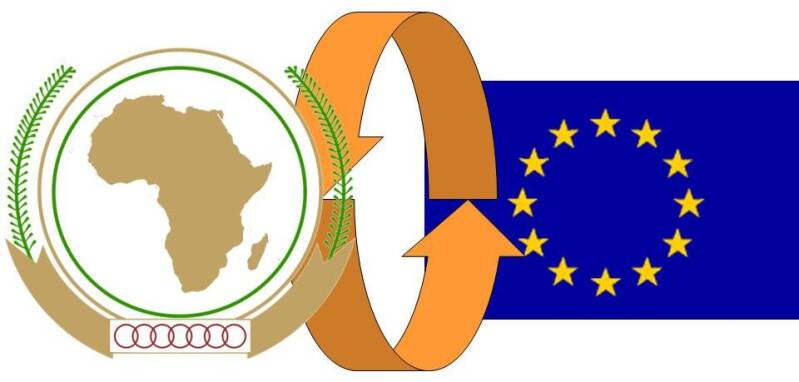
23/12/2022 karel.uyttendaele { @ } pandora.be
Massive EU-investments in Africa save the world
Circular Know-How Economy/Mobility Africa-Europe SMEs & Young Professionals
Africa's economic transformation : the role of Chinese investment
GRAND INGA hydropower project DRCongo = 44 nuclear reactors
EU governments only must promote the “other” Africa. That’s all
Green hydrogen, a breakthrough in Africa’s industrialisation
“Jobs & Modernity”, that is what Africa is concerned about
Africa, the solution, not a victim of global climate change
Future of Work in Africa. Role of Digital Technologies
Africa's advanced industrialisation in four phases
African green hydrogen silences Putin
Turning challenges into solutions


Maak jouw eigen website met JouwWeb